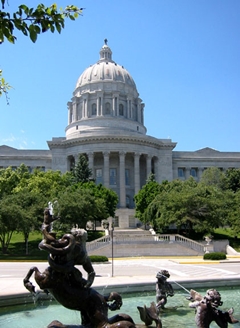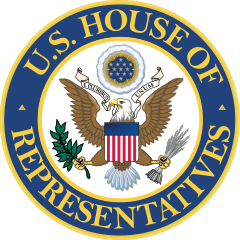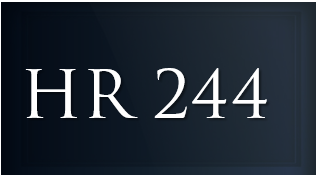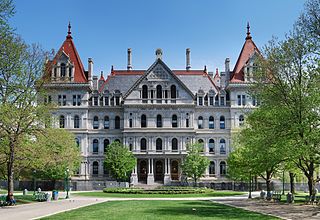August 6, 2020 •
Lawmakers Introduce The Ohio Anti-Corruption Act Bill to Amend Campaign Finance Law
Ohio Lawmakers have introduced identical House and Senate bills to increase transparency in corporate campaign contributions. House Bill 0739 and Senate Bill 0349, named the Ohio Anti-Corruption Act, require 501(c)(4)s and limited liability companies to disclose contributions and expenditures made […]
Ohio Lawmakers have introduced identical House and Senate bills to increase transparency in corporate campaign contributions.
House Bill 0739 and Senate Bill 0349, named the Ohio Anti-Corruption Act, require 501(c)(4)s and limited liability companies to disclose contributions and expenditures made to influence elections.
The bills eliminate the category of continuing association and expand the definition of “political contributing entity” to include partnerships and unincorporated business organizations or associations.
The bills also require political contributing entities to disclose the name of each officer, director, principal shareholder, partner, owner, or member of the corporation or unincorporated business.
In an effort to strengthen restrictions against foreign interests influencing Ohio elections, the bills also expand the definition of “foreign national.”
The definition will now include a corporation that is owned twenty percent or more by persons or entities from outside of the United States and a corporation that is owned five percent or more by any one person or entity from outside of the United States.
October 3, 2019 •
US District Court Finds New York Donor Disclosure Rules Unconstitutional
On October 1, the U.S. District Court for the Southern District of New York ruled state laws enacted in 2016 requiring disclosure of donors to tax exempt organizations to be invalid. In Citizens Union of the City of New York, […]
On October 1, the U.S. District Court for the Southern District of New York ruled state laws enacted in 2016 requiring disclosure of donors to tax exempt organizations to be invalid.
In Citizens Union of the City of New York, et al., v. Attorney General of the State of New York, the U.S. District Court found provisions in the state’s ethics laws requiring entities exempt from federal taxation under 26 USC §§501(c)(3) and 501(c)(4) to publicly report donors under certain circumstances to be unconstitutional.
The district court found the disclosure of funding sources requirement for 501(c)(3) entities making an in-kind donation over $2,500 to a 501(c)(4) entity engaged in lobbying violates the First Amendment because it chills speech and burdens donors’ rights to free association and privacy.
The district court also struck down the rule requiring 501(c)(4) to publicly disclose donors if the entity makes a public statement that refers to the position of an official regarding any potential legislation.
The second provision was found to intrude on donors’ right to express opinions anonymously.
June 27, 2019 •
New Jersey Dark Money Bill Signed, Challenged
Last week, New jersey Gov. Phil Murphy signed legislation requiring dark money groups spending money to influence elections in New Jersey to disclose their large donors. Senate Bill 1500, carried over from last year’s session, requires certain groups, like 501(c)(4) […]
Last week, New jersey Gov. Phil Murphy signed legislation requiring dark money groups spending money to influence elections in New Jersey to disclose their large donors.
Senate Bill 1500, carried over from last year’s session, requires certain groups, like 501(c)(4) political nonprofits to disclose the identities of donors who give more than $10,000.
Additionally, the groups are required to report expenditures in excess of $3,000.
Gov. Murphy previously conditionally vetoed the bill.
However, the Governor signed an identical version when faced with a veto override because the bill’s sponsors agreed to tweak the legislation before it takes effect.
Since signed, the bill has faced opposition from citizen-based organizations and advocacy groups.
Those groups are arguing the new disclosure requirements will prevent people from donating to them.
On Tuesday, a federal lawsuit challenging the legislation was filed by Americans for Prosperity, a libertarian advocacy nonprofit founded by the Koch brothers.
Americans for Prosperity asked for the new law not to be enforced until the suit challenging the constitutionality of the law is decided.
New Jersey’s Election Law Enforcement Commission and Attorney General Lee Moore declined to comment on the pending legislation.
May 20, 2019 •
New Jersey Dark Money Disclosure Bill Vetoed
Gov. Phil Murphy conditionally vetoed legislation requiring dark money groups spending money to influence elections in New Jersey to disclose their large donors. Senate Bill 1500, carried over from last year’s session, requires disclosure of contributors giving more than $10,000 […]
Gov. Phil Murphy conditionally vetoed legislation requiring dark money groups spending money to influence elections in New Jersey to disclose their large donors.
Senate Bill 1500, carried over from last year’s session, requires disclosure of contributors giving more than $10,000 to 501(c)(4) groups engaging in political activities and lobbying.
In issuing the veto, Gov. Murphy said the bill contained loopholes and inconsistent disclosure standards.
He also expressed concern about the legislation not passing judicial scrutiny because of broad disclosure requirements beyond spending in elections for groups involved in issue campaigns.
The veto went on to recommend requiring companies receiving large scale tax credits from the state to disclose public contracts and political contributions to the New Jersey Election Law Enforcement Commission (ELEC).
The recommendation also sought to strike a provision limiting elected officials from managing dark-money groups.
Supporters of Senate Bill 1500, which overwhelmingly passed both houses, argued the legislation leveled the playing field by requiring all groups to disclose if trying to sway elections, legislation, or policy.
The legislature can attempt an override of the governor’s veto or work towards amending the bill based on the governor’s recommendations.
March 22, 2018 •
House Spending Bill Includes Campaign Finance Provisions
Among the provisions in the 2,232-page federal 2018 spending bill passed by the U.S. House today were sections affecting campaign finance. One provision of the bill prohibits the Internal Revenue Service from issuing, revising, or finalizing any regulation, revenue ruling, […]
 Among the provisions in the 2,232-page federal 2018 spending bill passed by the U.S. House today were sections affecting campaign finance.
Among the provisions in the 2,232-page federal 2018 spending bill passed by the U.S. House today were sections affecting campaign finance.
One provision of the bill prohibits the Internal Revenue Service from issuing, revising, or finalizing any regulation, revenue ruling, or other guidance relating to the standard used to determine whether an organization is operated exclusively for the promotion of social welfare for purposes of section 501(c)(4) of the Internal Revenue Code of 1986.
The prohibition includes not implementing proposed regulations from 2013 that sought to provide guidance to tax-exempt social welfare organizations concerning political activities related to candidates that would not be considered to promote social welfare.
Additionally, the bill prohibits the executive branch from requesting “a determination with respect to the treatment” of a tax-exempt 501(c) organization.
Another provision of the bill prohibits the federal government from recommending or requiring any entity submitting an offer for a federal contract to disclose, as a condition of submitting the offer, any payment consisting of a contribution, expenditure, independent expenditure, or disbursement for an electioneering communication made by the entity, its officers or directors, or any of its affiliates or subsidiaries to federal candidates and political committee.
March 8, 2018 •
Missouri Bill Would Increase Vendor Disclosure Requirements
Missouri lawmakers are considering a bill to increase transparency in the state procurement process. Senate Bill 1060 would require individuals, corporations, associations, and other business entities entering into certain state contracts to disclose political contributions of $500 or more made […]
 Missouri lawmakers are considering a bill to increase transparency in the state procurement process.
Missouri lawmakers are considering a bill to increase transparency in the state procurement process.
Senate Bill 1060 would require individuals, corporations, associations, and other business entities entering into certain state contracts to disclose political contributions of $500 or more made to 501(c)(4) political organizations.
The bill would also require such persons or entities to file a new disclosure for any year a contract remains in effect.
Without the proposal, the identity of those contributing to political organizations would otherwise remain anonymous; current campaign finance law does not require such organizations to file reports of contributions and expenditures.
May 15, 2017 •
501(c)(4) Reform Act of 2017 Introduced in US House
A bill introduced in the U. S. House of Representatives intends to prohibit tax exemptions under Section 501(c)(4) of the Internal Revenue Code for social welfare organizations engaged in political activity. House Bill 2338, the 501(c)(4) Reform Act of 2017, […]
 A bill introduced in the U. S. House of Representatives intends to prohibit tax exemptions under Section 501(c)(4) of the Internal Revenue Code for social welfare organizations engaged in political activity.
A bill introduced in the U. S. House of Representatives intends to prohibit tax exemptions under Section 501(c)(4) of the Internal Revenue Code for social welfare organizations engaged in political activity.
House Bill 2338, the 501(c)(4) Reform Act of 2017, amends the Internal Revenue Code to prohibit 501(c)(4) entities from participating in, or intervening in (including the publishing or distributing of statements), any political campaign.
Rep. Michelle Lujan Grisham introduced the legislation on May 3. The bill is currently in the House Committee on Ways and Means.
May 8, 2017 •
US Spending Bill Has Campaign Finance Provisions
Among the amendments in the 2017 Consolidated Appropriations Act that passed into law on May 5 are two provisions affecting campaign financing. House Resolution 244 explicitly prohibits the Internal Revenue Service from making new rules concerning the political speech or […]
 Among the amendments in the 2017 Consolidated Appropriations Act that passed into law on May 5 are two provisions affecting campaign financing.
Among the amendments in the 2017 Consolidated Appropriations Act that passed into law on May 5 are two provisions affecting campaign financing.
House Resolution 244 explicitly prohibits the Internal Revenue Service from making new rules concerning the political speech or activity of 501(c)(4) organizations. The legislation also prohibits the Securities and Exchange Commission from finalizing, issuing, or implementing any rule, regulation, or order regarding the disclosure of political contributions, contributions to tax exempt organizations, or dues paid to trade associations.
The 708 page omnibus spending bill, passed by Congress on May 4 and signed by the president on May 5, funds the U.S. government through September 30.
December 16, 2016 •
New York Sued Over New Disclosure Laws
Minutes before midnight on December 12, 2016, Citizens Union (CU) filed a complaint against the State of New York alleging a violation of the First Amendment of the United States Constitution. CU seeks declaratory and injunctive relief from disclosure laws […]
 Minutes before midnight on December 12, 2016, Citizens Union (CU) filed a complaint against the State of New York alleging a violation of the First Amendment of the United States Constitution. CU seeks declaratory and injunctive relief from disclosure laws passed in June.
Minutes before midnight on December 12, 2016, Citizens Union (CU) filed a complaint against the State of New York alleging a violation of the First Amendment of the United States Constitution. CU seeks declaratory and injunctive relief from disclosure laws passed in June.
The new laws lowered the annual lobbying spending threshold from $50,000 to $15,000 for 501(c)4 organizations. Additionally, the new laws require 501(c)4 organizations to disclose donors who give more than $2,500. The complaint was filed in the United States District Court for the Southern District of New York.
July 11, 2011 •
IRS Stops Investigating 501(c)(4) Organizations
Future Action Possible
 The Internal Revenue Service will not pursue its proposed check on the applicability of gift tax contributions to 501(c)(4) organizations. Acknowledging it has limited history or guidance on this issue, the IRS announced it “will not use resources to pursue examinations on this issue. Any future action we take will be prospective and after notice to the public.”
The Internal Revenue Service will not pursue its proposed check on the applicability of gift tax contributions to 501(c)(4) organizations. Acknowledging it has limited history or guidance on this issue, the IRS announced it “will not use resources to pursue examinations on this issue. Any future action we take will be prospective and after notice to the public.”
In recent years, 501(c)(4) organizations, which allow for limited disclosure requirements, have taken a more prominent role in the campaign finance landscape.
State and Federal Communications, Inc. provides research and consulting services for government relations professionals on lobbying laws, procurement lobbying laws, political contribution laws in the United States and Canada. Learn more by visiting stateandfed.com.


